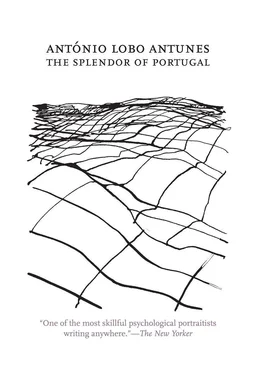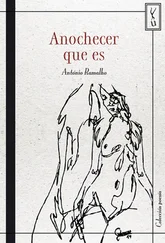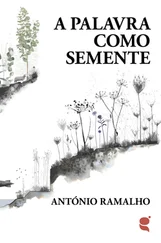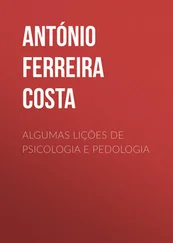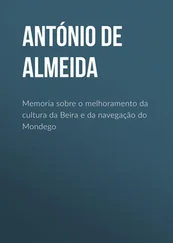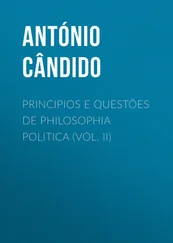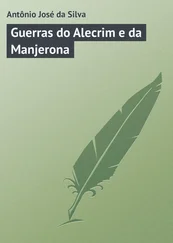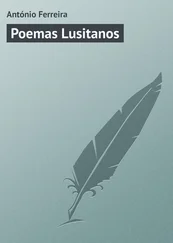António Antunes - The Splendor of Portugal
Здесь есть возможность читать онлайн «António Antunes - The Splendor of Portugal» весь текст электронной книги совершенно бесплатно (целиком полную версию без сокращений). В некоторых случаях можно слушать аудио, скачать через торрент в формате fb2 и присутствует краткое содержание. Год выпуска: 2011, Издательство: Dalkey Archive Press, Жанр: Современная проза, на английском языке. Описание произведения, (предисловие) а так же отзывы посетителей доступны на портале библиотеки ЛибКат.
- Название:The Splendor of Portugal
- Автор:
- Издательство:Dalkey Archive Press
- Жанр:
- Год:2011
- ISBN:нет данных
- Рейтинг книги:3 / 5. Голосов: 1
-
Избранное:Добавить в избранное
- Отзывы:
-
Ваша оценка:
- 60
- 1
- 2
- 3
- 4
- 5
The Splendor of Portugal: краткое содержание, описание и аннотация
Предлагаем к чтению аннотацию, описание, краткое содержание или предисловие (зависит от того, что написал сам автор книги «The Splendor of Portugal»). Если вы не нашли необходимую информацию о книге — напишите в комментариях, мы постараемся отыскать её.
The Splendor of Portugal — читать онлайн бесплатно полную книгу (весь текст) целиком
Ниже представлен текст книги, разбитый по страницам. Система сохранения места последней прочитанной страницы, позволяет с удобством читать онлайн бесплатно книгу «The Splendor of Portugal», без необходимости каждый раз заново искать на чём Вы остановились. Поставьте закладку, и сможете в любой момент перейти на страницу, на которой закончили чтение.
Интервал:
Закладка:
a sergeant in a Panama hat, oblivious of the other soldiers, grilled a snake at the end of the handle of a cannon brush and didn’t bother us, a dust devil made the fallen leaves dance in the convent courtyard in between broken columns, salamanders and geckos crawling on the remains of arches, where my father, walking slowly with his canes, often came to watch the gledes fly about, my father in his bed, a rosary hanging on the headboard, looking at us with the alarmed expression of a blind man
“Give your father a kiss”
his nostrils enormous, his neck ringed with blotches and straining with the enormous task of trying to breathe
(you could tell that his ribs hurt him)
I tripped over one of his canes and it crashed to the ground with the loudest bang I ever heard, to this day, my brother screamed when the thunder struck and submerged himself beneath the furniture on all fours, holding tight to the chair, a glob of chocolate stained his bib
“I won’t give him a kiss”
the raspy deterioration of my father’s voice, on that day we had lunch in the dining room to the sound of the rain on the roof, the servants made sandwiches, grilled croquettes on wooden skewers, brought them to us on platters held high, cars from the other farms parked in the yard, my sister to my mother, trying to escape from the soldiers in tattered uniforms
“Get out get out”
“Mother”
opening our suitcases, ripping our bags, leaving me speechless, the sergeant with the snake, rotating the brush handle, turned on a battery-operated radio as if this were some kind of holiday and he was at the bar with his buddies, all at once the music blared and crackled from the ditch at the side of the road and deafened us, my mother pushed one of the soldiers with her purse
“Give them your earrings so they’ll leave us alone Clarisse give them whatever they want”
it was then that I noticed a body lying near the snake, a soldier missing half his head and covered in blowflies, I pinched Lena’s arm, whispered softly to Lena
“Keep quiet”
a soldier hit her in the belly with the butt of his rifle
the belly that never bore a child have you heard the news brace yourself don’t faint guess who Carlos is going out with
they tore off her necklace, the beads flew everywhere at the very moment that the sergeant began to cut the snake with his knife, my sister gave up her earrings, her hairpin, her ring, the pavement of the Malanje highway, cracked by all the mortars, vibrated in the heat and in the midst of all this the sound of an airplane, the soldiers hiding in the tall grass, the sergeant cutting the snake into pieces, putting them in a sack, and heading off without any hurry, my mother climbing behind the steering wheel and putting the jeep in gear
“Hurry”
while we shoved clothes into the open suitcases, grabbed shirts, socks, pants, Lena’s bag of makeup and perfume and the smashed vials, my mother scanning the tall grass
“Hurry”
Lena couldn’t walk because of the blow she’d received, and Rui and I carried her
“You haven’t seen your siblings in fifteen years”
“Hurry hurry”
my sister kept gathering up nightgowns, sandals, a round mirror, the beads from the necklace that danced in the sunlight, the sound of the airplane faded away to the north, up past the Pecagranja jungle or Chiquita
I remember the mango trees and the Jinga who was lynched by the head of police, I remember the rest of the Jingas waiting quietly
a bomb, a second bomb, a distant cannon blossomed in the sky, my mother afraid that the UNITA soldiers would return and we’d suffer the same fate as the soldier covered in blowflies
“Clarisse”
the jeep swerved down the highway, Lena clasping her arms around her stomach, skinny, hair in braids, leaving the Malanje church, the organ still blowing its tune, cousins scattering flower petals along the steps, the bishop smiled, the lynching victim thrashed his legs one or two times and twirled in front of the tree trunk, the chief of police pointed at him with his horsewhip
“Buy your dried fish at the company store, not the store in town”
he ordered his men to destroy the crates of fish that belonged to the mulatto merchant, who didn’t dare move a muscle, they poured gasoline on it and set it ablaze, burned the bolts of fabric, the packages of tobacco, the racks of buttons, suspenders, elastic, leather belts, and wooden toys, the merchant came with his son on his shoulders to ask my mother for forgiveness, kneeling at her feet straight away
“I swear that I had no idea that they worked for you ma’am I don’t sell anything to the farm workers just to the people in Chiquita”
lying through his teeth given that everyone in Chiquita worked for us and he was stealing some of our profits, pretending to be meek, trying to play to our emotions with the child, showing us the shack he lived in
“I’m just a poor man”
kissing my mother’s hand, kissing my hand, in the end I asked the native soldiers for a nightstick, the merchant protecting his child, whimpering through his busted lips
“Don’t hurt me I’m just a poor man don’t hurt me anymore”
to teach him obedience we divided up the suckling pigs and the pork rinds between our foremen, a group of grinning and delighted creatures, as Africans always are when they profit from the misfortune of others, ransacking the mulatto’s wares, bumping into the hanging man in a greedy rush to grab ash and garbage, the mulatto’s wife watching them silently, an Indian in sandals who worked in the hut that passed for a school teaching children without slide rule or textbooks, writing crooked numbers and letters on butcher paper, the first fruit bats flitted belligerently in the dusk’s cautious transition into night, the chief of police addressing my mother, courteously
“Maybe we should hang him”
the terrified merchant, his hair a mess, the muddy mane of an aging horse, his customers already seated on some stones in the cheerful hope that there would be a second execution, free of charge, more fun than the old films they used to show on the side of the gas station on Camões Day, speeches by President Carmona, parades of firemen, the kids from the Portuguese Youth group marching with arms outstretched in the Roman salute, inaugurations of dams and levees, all the festivities feeling dangerous, people shoving, looking for a place to sit, the film likely to burn up at any minute, the projectionist
“Damn”
mending it with glue, the workers hesitating with their green and red flags, not knowing what to do with them, they were given a cup of wine, a package of cookies, and a medallion of our lady of Fátima, the crowd bellowed at them
“Long live the Patria”
they responded unenthusiastically, I never saw them enthusiastic about anything except mischief and shiny metal wristwatches
“Long live the Patria”
and they were left in peace until the next day, waving flags, their stomachs full, dead drunk in the servants’ quarters, they beamed at the real possibility of another hanging, especially if they were part of the guy’s family and stood to inherit his junk, the broken saucepan, the mug with no handles, the wretched little rug, my mother to the head of police, exacting, but with a sharp eye toward her financial well-being
“If we hang them all then who do I have to put to work, can you tell me that?”
and since the head of police had no intention of harvesting rice from six in the morning on, for fifteen escudos a day, and the added obligation to spend it at the company store and still end up owing money at the end of the month, because the price of fish was so high, triple what the rest of the village paid, the native soldiers abandoned their excellent plan to leave the brute hanging from a tree, legs flailing, for the even better one of giving them all a good bashing with their nightsticks, although the people, oddly enough, weren’t too thrilled at this prospect and took off running for the rafts in the river, that ungrateful bunch, their hands holding sore backs or buttocks, corresponding to the whims of the nightsticks, chased by my brother and pellets from the air rifle with which he had terrorized Pecagranja since Easter, my mother worrying
Читать дальшеИнтервал:
Закладка:
Похожие книги на «The Splendor of Portugal»
Представляем Вашему вниманию похожие книги на «The Splendor of Portugal» списком для выбора. Мы отобрали схожую по названию и смыслу литературу в надежде предоставить читателям больше вариантов отыскать новые, интересные, ещё непрочитанные произведения.
Обсуждение, отзывы о книге «The Splendor of Portugal» и просто собственные мнения читателей. Оставьте ваши комментарии, напишите, что Вы думаете о произведении, его смысле или главных героях. Укажите что конкретно понравилось, а что нет, и почему Вы так считаете.
